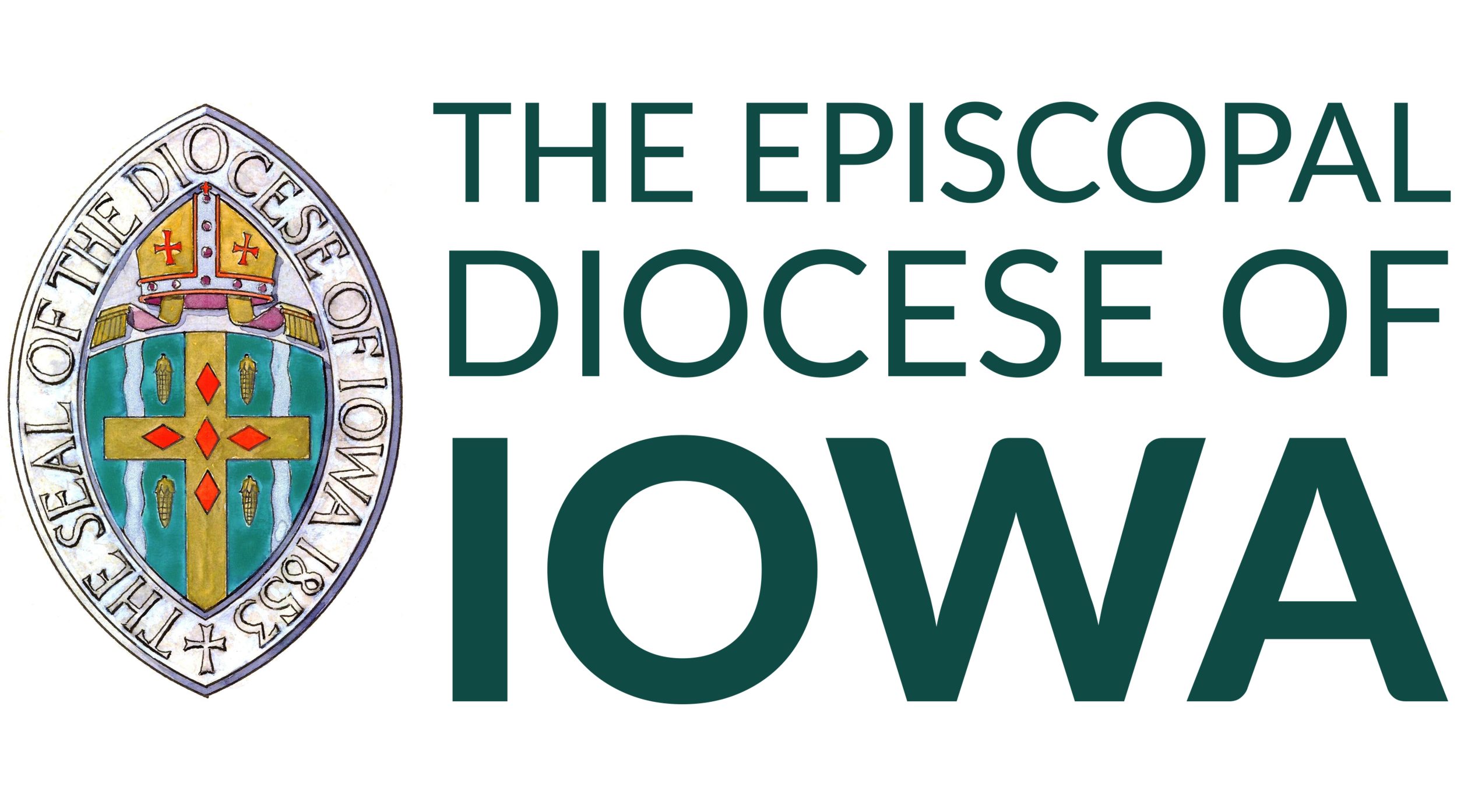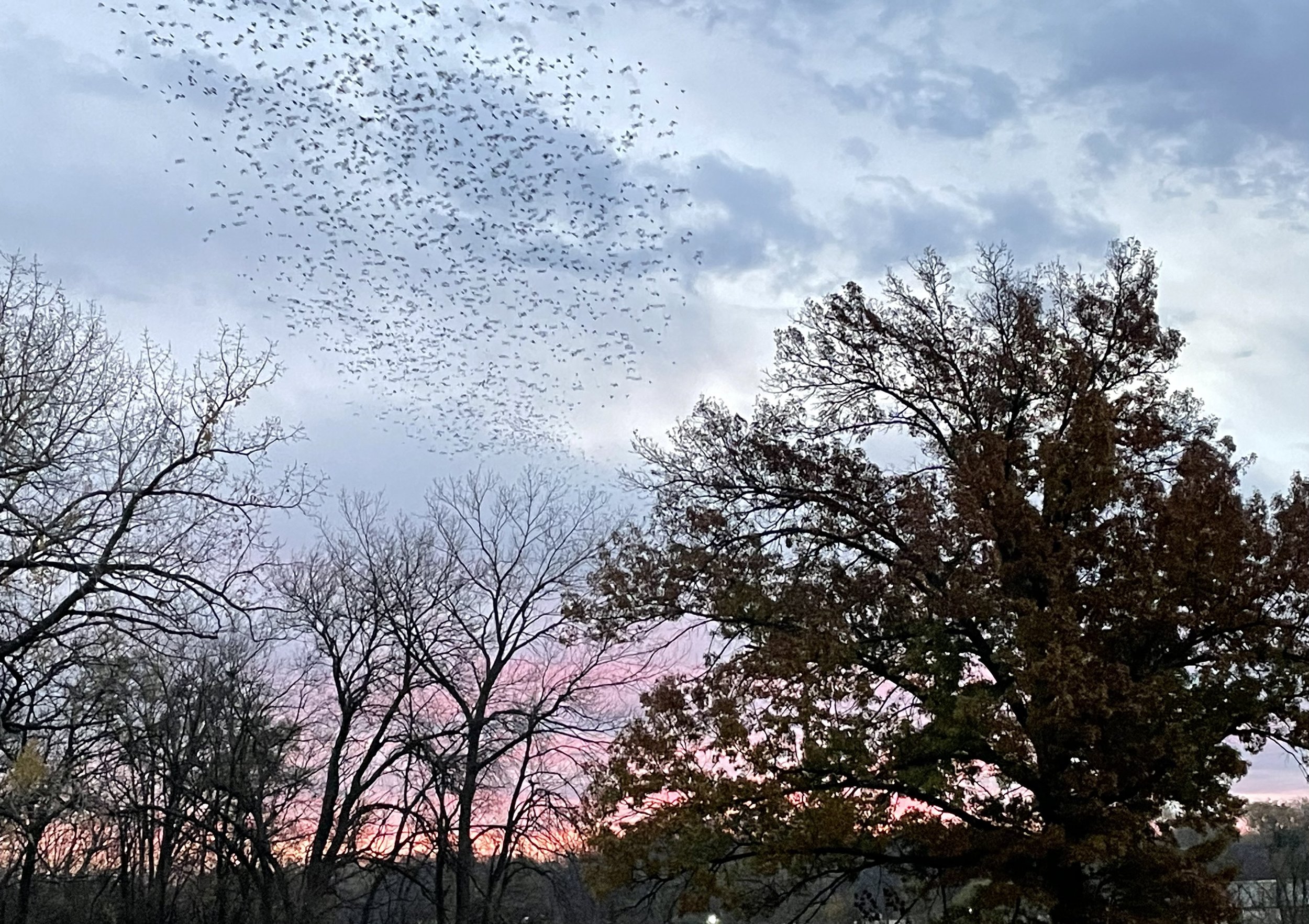November 2024 e:News: From Bishop Monnot
The other morning as the sun was coming up I saw one of nature’s coolest sights: a vast murmuration of starlings flying across the sky and toward the rising sun. We’ve all seen these incredible formations—massive flocks of birds that flow and shift in the air, creating beautiful shapes as they fly. From the ground, it looks as though the whole flock is being controlled by a single mind as the individual birds appear to act together as one large organism. In fact, previous generations of naturalists believed that the birds communicated through some kind of telepathy or group thought.
Scientists have posited more recently that the birds are able to make these mid-air flowing course changes in perfect harmony simply because they are paying close attention to each other. Each bird watches six or seven of its closest neighbors and adjusts its own flight pattern to remain in formation with them. As birds on the edge of the flock react to the sight of a predator by turning away from it, a wave of turning moves through the flock and the entire flock appears to respond as one to the threat.
Somewhere, buried deep in the instinctive behaviors of these birds, is something that in human beings we would call “trust.” The ability of the entire flock to respond to its environment as one relies on an instinct that allows each bird to intuitively trust its neighbors as they fly together and to change its flight pattern to remain in harmony with those neighbors. This is what produces the flowing patterns of flight that we marvel at from the ground.
On a human scale, we could imagine this responsiveness to the beings around us as one of the practical ways that we love our neighbor. Love is an action word, not a passive feeling, and so in order to love our neighbor we need to pay attention and to respond to them. Part of this means that we have to learn to trust our neighbors and to respect their stories. If our neighbor tells us they see a threat, we need to take that seriously and join them in keeping the flock safe. Of course, as human beings rather than as starlings, if what our neighbor sees as a threat is another human being (someone who looks, behaves, or sounds different, for example), we have to remember that every human being is a part of our flock and that loving our neighbors means keeping all of us safe. One part of the flock turning against another part will only lead to the true predators having a feast.
In our current cultural environment, it can be hard to trust. Misinformation (information that is unintentionally inaccurate) and disinformation (inaccurate information disseminated for a nefarious purpose) are everywhere. At the same time, we are disciples of Jesus who said, “you will know the truth, and the truth will make you free.” (John 8:32) We Christians need to learn to occupy the space that includes constant searching for the truth as well as trusting our neighbors as part of loving them.
Unlike birds, we human beings have egos, and so we are capable of selfishness and an unhealthy desire for power and status. We are prone to regarding our own selves as the highest authority in our lives, and to forgetting that it is God alone who can truly be our authority. God commanded us to love God and to love our neighbor, and in order to follow those commandments we need to be humble enough to accept that we in our humanity are not capable of being God for ourselves—we need God to be God. Since we are not birds, this struggle against idolatry is a life-long struggle for all of us.
At our best, when we come together in community, trusting one another and recognizing that each of us has need of each other as an interconnected web, we can learn to behave like a murmuration of starlings. We can learn to be responsive to one another as we meet each other’s needs. We can change our own trajectory in order to care for each other. We can learn to trust in the wisdom of the community over our own personal opinion. When we are able to do these things, like the birds in harmonious flight, we manifest beauty together.
Yours in the abundant life of Christ,
+Betsey
The Rt. Rev. Betsey Monnot, Bishop of the Episcopal Diocese of Iowa

